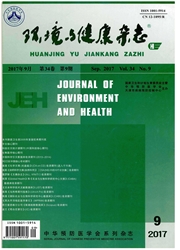

 中文摘要:
中文摘要:
建立以人体细胞作为污染物的体外短期实验系统已成为环境毒理学研究的趋势之一。人胚肺成纤维细胞(HELF)的遗传性状接近体内正常细胞,且对外加作用因子比较敏感,已用于多种环境污染物和外源性化合物的毒性研究。该文综述了环境污染物中已知的致癌物和潜在致癌物、纳米颗粒以及大气颗粒物、香烟烟雾、烹调油烟等对人胚肺成纤维细胞的毒性及其作用机制,为深入研究环境污染物对人体健康的影响提供科学依据。
 英文摘要:
英文摘要:
h has become one of the research trends in environmental toxicology to create a short-term in vitro experiment system with human cells for pollutants. Human embryonic lung fibroblasts (HELF), of which genetic characters are close to the normal cells in the body and are more sensitive to the external factors, and have been used in toxicological study of various environmental pollutants and xenobiotic compounds. The effects and mechanisms of environmental contaminants,involve of the known carcinogens and potential carcinogens,nanoparticles,particulate matter,cigarette smoke and cooking fume to human embryo lung fibroblast cells were summarized in this paper. The review may provide scientific bases for further study of the effect of environmental pollutants on human health. Key words:Human embryo lung fibroblasts;Environmental contaminants;Metallic compounds;Nanoparticles;Organic pollutants
 同期刊论文项目
同期刊论文项目
 同项目期刊论文
同项目期刊论文
 期刊信息
期刊信息
